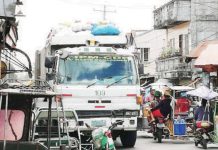
ENERGY stability is a cornerstone Western Visayas’ economic growth and quality of life improvement. However, while the Regional Development Council’s Western Visayas Regional Development Plan for 2023-2028 lays out an ambitious roadmap focusing on renewable energy, the actualization of these goals is mired in bureaucratic delays and lack of local governance readiness.
The region, blessed with potential for solar, hydro, and wind energy, could be a model for the country’s energy transition. Yet, the slow pace of project endorsements by local government units (LGUs) and the prolonged process of obtaining necessary consents from the National Commission on Indigenous Peoples (NCIP) are stifling progress. The need for LGUs to expedite the permitting and licensing processes is an essential enabler of sustainable development.
Adding to the problem is the inconsistency in integrating energy considerations into local development plans. With only 34 out of 133 towns and cities having comprehensive development plans that include energy policies, the gap between policy and practice remains wide. This dissonance is an oversight in local governance that could derail not just regional but national goals for renewable energy.
Indeed, the challenge is complex and requires manifold responses. There is a pressing need for capacity building among LGUs to handle energy project applications more efficiently. This involves not just procedural training but a fundamental shift in how energy projects are perceived — from potential nuisances to essential drivers of local development.
Advocacy needs to be intensified at all levels, too —regional, provincial, and municipal — to align the objectives of various stakeholders with the national vision for a low-carbon future. This may include harnessing indigenous resources and understanding the nuances of renewable energy technologies, which are vital for informed decision-making and policy crafting.
And yes, why not establish a Department of Energy regional office could be a catalyst for change, providing the necessary support and impetus for decentralizing energy projects? Such a move would not only address the specific needs and challenges of Western Visayas but also set a precedent for other regions, promoting a more balanced development across the country.
Let this be a call to action for all involved — from local governments to national agencies — to redouble their efforts, streamline processes, and truly prioritize the region’s energy future.







